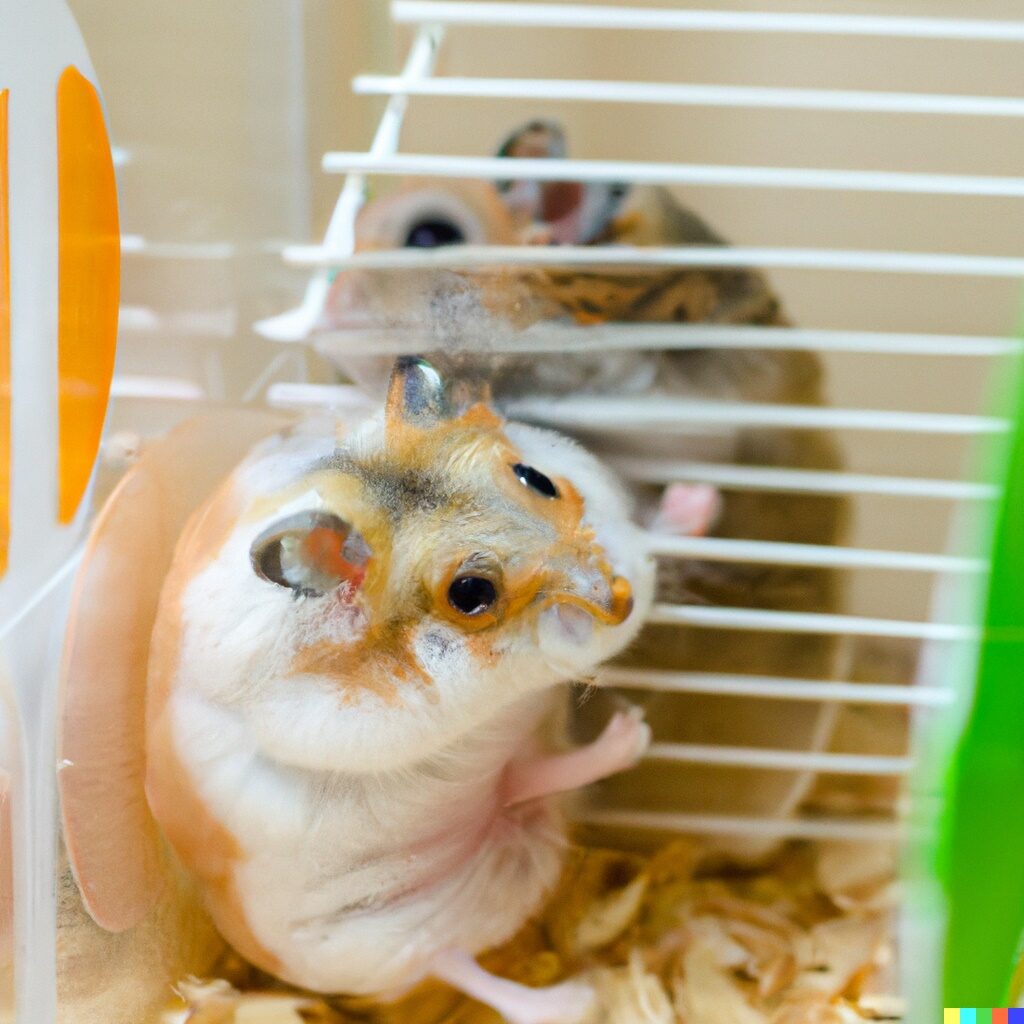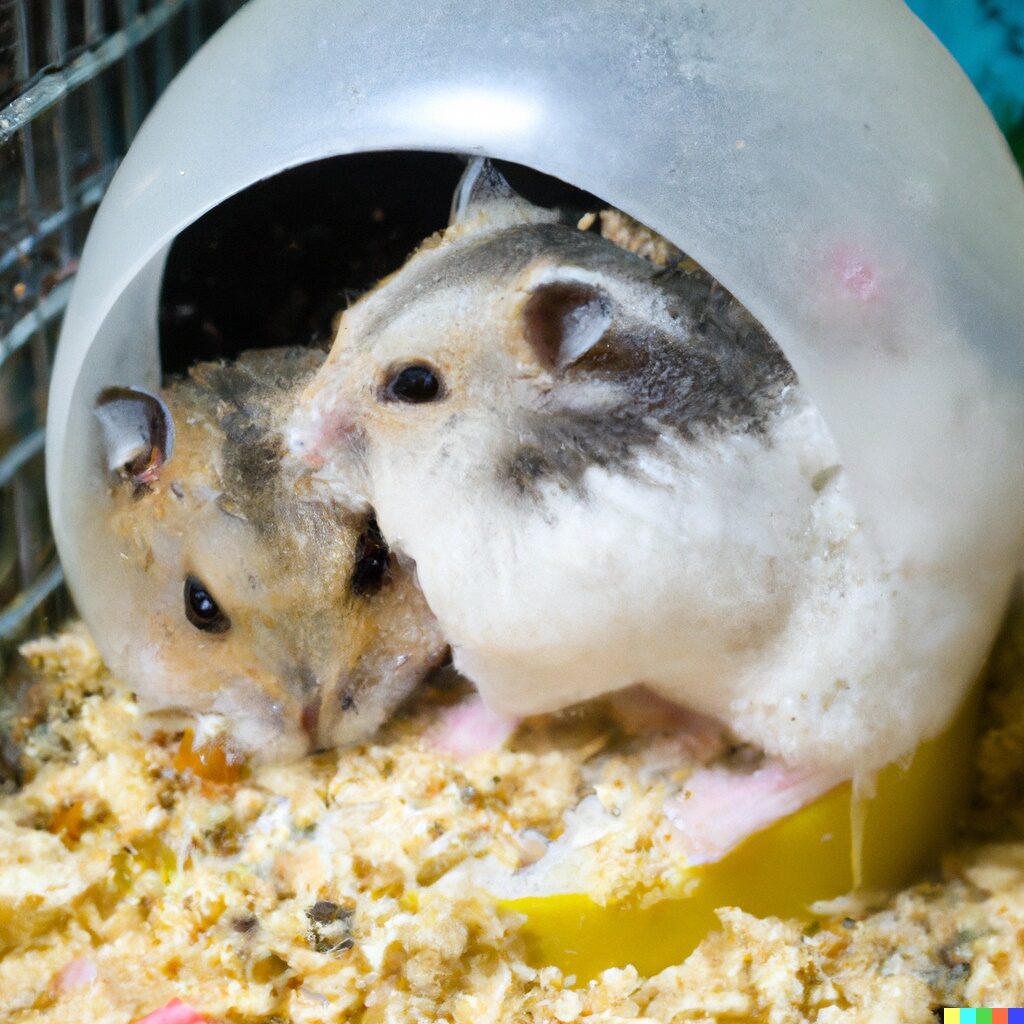Hamsters are cute, small, and cuddly creatures that make great pets. They are low maintenance, don’t require a lot of space, and are generally easy to care for. However, before bringing a hamster into your home, it’s important to understand the basics of hamster care. In this ultimate guide, we’ll cover everything you need to know about keeping a hamster as a pet, including choosing the right hamster, setting up their habitat, providing them with the right food and water, caring for them, and monitoring their health.
Choosing a Hamster as a pet
When it comes to choosing a hamster, there are several different types to choose from, including Syrian hamsters, Dwarf hamsters, Roborovski hamsters, and Chinese hamsters. Each type has its own unique characteristics, and it’s important to choose the right type of hamster for your lifestyle and preferences. Syrian hamsters are the largest and most popular type of hamster and are best for first-time owners. Dwarf hamsters are smaller and faster than Syrian hamsters, making them a good choice for owners with limited space. Roborovski hamsters are the smallest type of hamster and are very active, making them a great choice for owners who want to watch their hamsters play. Chinese hamsters are similar to Dwarf hamsters but are a bit more active and sociable.
Setting Up the Hamster Habitat
Once you’ve chosen the right hamster, it’s time to set up their habitat. A hamster habitat should be spacious enough to allow your hamster to move around freely and have plenty of room to play. The minimum recommended cage size is 450 square inches, but the larger the cage, the happier your hamster will be. The cage should also be equipped with bedding, toys, and a running wheel. You should also ensure that the cage is kept in a quiet, draft-free location and is cleaned regularly.

Hamster Food and Water
Hamsters have specific dietary needs and require a balanced diet of commercial hamster food supplemented with fresh fruits and vegetables. It’s important to provide fresh water to your hamster daily, and you should ensure that the water bottle is cleaned regularly to prevent bacteria buildup. You should also be careful not to overfeed your hamster, as obesity can lead to health problems.
Caring for a Hamster
Caring for a hamster involves daily care routines, including feeding, watering, and cleaning. You should also ensure that your hamster gets enough exercise and playtime. It’s important to handle your hamster gently and carefully, as they can be easily injured. You should also be patient with your hamster, as they may take some time to warm up to you.
Hamster Health
Keeping your hamster healthy is essential for their wellbeing. You should monitor your hamster’s behavior and look out for signs of illness, such as lethargy, loss of appetite, and difficulty breathing. You should also ensure that your hamster’s teeth are healthy, as dental problems are common in hamsters. If you notice any signs of illness, you should take your hamster to the vet immediately.
Hamsters are generally healthy pets, but they can suffer from various health problems if not properly cared for. Some of the most common health issues that affect hamsters include dental problems and respiratory infections.

Dental Issues Hamsters have continuously growing teeth that need to be kept in check through regular chewing. If a hamster’s teeth become too long, they can cause serious health problems. Some common dental issues in hamsters include overgrown teeth, broken teeth, and malocclusion (misalignment of the teeth). Signs of dental problems in hamsters include drooling, difficulty eating, weight loss, and pawing at the mouth.
To prevent dental issues, it’s essential to provide your hamster with chew toys, such as wooden blocks or branches, to keep their teeth trimmed. It’s also important to feed them a balanced diet and avoid giving them sugary treats. If you notice any signs of dental problems, take your hamster to the vet as soon as possible.
Respiratory Infections Respiratory infections are common in hamsters, especially in those kept in environments with poor ventilation or high humidity. The most common respiratory infection in hamsters is caused by the bacterium Mycoplasma. Signs of respiratory infections in hamsters include sneezing, wheezing, coughing, labored breathing, and discharge from the eyes and nose.
To prevent respiratory infections, it’s important to keep your hamster’s environment clean and well-ventilated. Avoid exposing them to cigarette smoke, dust, or other irritants. If you suspect your hamster has a respiratory infection, take them to the vet immediately. Respiratory infections can be serious and even fatal if left untreated.
In addition to dental problems and respiratory infections, hamsters can also suffer from other health issues such as diarrhea, wet tail (a bacterial infection of the intestines), and tumors. Regular veterinary checkups and proper care can help prevent many of these health problems and ensure that your hamster stays healthy and happy.
signs of a healthy hamster and what to look out for if your hamster is unwell
As a hamster owner, it’s important to know what a healthy hamster looks and acts like so you can quickly notice any signs of illness or distress. Here are some signs of a healthy hamster to look out for:
- Bright eyes: A healthy hamster’s eyes should be bright and clear, without any discharge or redness.
- Active behavior: A healthy hamster is active and alert, and enjoys exploring its environment.
- Glossy fur: A healthy hamster’s fur should be clean, shiny, and well-groomed.
- Good appetite: A healthy hamster should have a good appetite and enjoy eating its food.
- Normal stool: A healthy hamster’s stool should be firm and formed, without any signs of diarrhea.
If you notice any changes in your hamster’s behavior or appearance, it’s important to take them to the vet right away. Here are some signs that your hamster may be unwell:
- Loss of appetite: If your hamster is not interested in its food or is not eating at all, it could be a sign of illness.
- Lethargy: If your hamster is unusually quiet and spends more time sleeping than usual, it may be a sign of illness.
- Weight loss: If you notice that your hamster is losing weight rapidly or becoming very thin, it could be a sign of a serious health problem.
- Discharge from the eyes or nose: Any discharge from the eyes or nose could be a sign of a respiratory infection or other illness.
- Diarrhea: Loose or watery stools can be a sign of a bacterial or viral infection or a problem with your hamster’s diet.
If you notice any of these signs, it’s important to take your hamster to the vet as soon as possible. Hamsters are small and fragile creatures, and illnesses can progress rapidly if not treated promptly. With proper care and attention, however, you can help keep your hamster healthy and happy.
tips on how to prevent health problems and ensure that your hamster stays healthy
Prevention is key when it comes to keeping your hamster healthy. Here are some tips to help you prevent health problems and ensure that your hamster stays happy and healthy:
- Provide a clean living environment: A clean and hygienic living environment is essential for your hamster’s health. Clean the cage and accessories regularly, and provide fresh bedding and water daily.
- Feed a balanced diet: A balanced diet is important for your hamster’s health. Feed your hamster a high-quality hamster food and supplement with fresh fruits and vegetables.
- Provide opportunities for exercise: Hamsters are active animals and need opportunities for exercise to stay healthy. Provide a wheel or other toys to encourage activity.
- Offer chew toys: Hamsters have continuously growing teeth that need to be kept in check through regular chewing. Provide wooden blocks or branches for your hamster to chew on.
- Keep the environment at the right temperature and humidity: Hamsters are sensitive to temperature and humidity, so it’s important to keep their environment at the right levels. The ideal temperature for a hamster is between 60 and 75 degrees Fahrenheit, and the humidity should be around 40 to 60 percent.
- Regular vet checkups: Regular veterinary checkups can help detect health problems early and prevent serious illnesses from developing. Take your hamster to the vet at least once a year for a checkup.
- Handle your hamster gently: Hamsters are fragile animals and can easily become stressed or injured. Handle your hamster gently and avoid sudden movements or loud noises.
By following these tips, you can help prevent health problems and ensure that your hamster stays healthy and happy. Regular care and attention can help you catch any health issues early and ensure that your hamster receives the necessary treatment to recover quickly.
conclusion
In conclusion, hamsters can make great pets for the right owner. They are small, cute, and relatively low-maintenance animals that can provide companionship and entertainment. However, it’s important to remember that hamsters have unique needs and require proper care to stay healthy and happy.
As a responsible hamster owner, you should be prepared to provide a clean and stimulating living environment, a balanced diet, opportunities for exercise, and regular veterinary care. You should also be aware of common health problems that can affect hamsters and know what to look for if your hamster becomes unwell.
If you are willing to provide the necessary care and attention, a hamster can be a great addition to your family. They are adorable and entertaining animals that can bring joy and happiness to your life. However, it’s important to do your research and understand the responsibilities of owning a hamster before making the commitment.
Overall, hamsters can be great pets for those who are willing to put in the effort to care for them properly. With love and attention, your hamster can live a happy and healthy life as a cherished member of your family.











